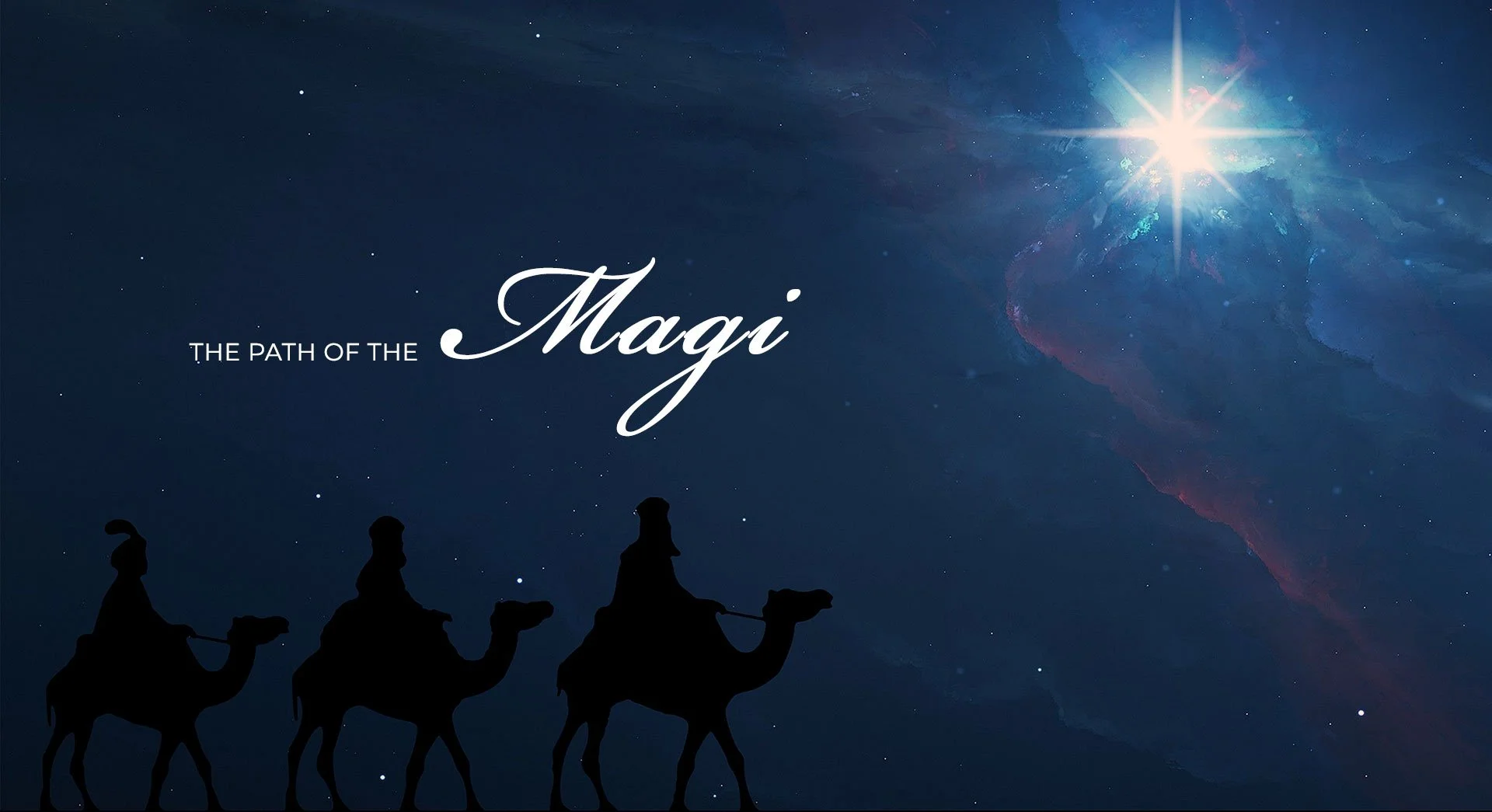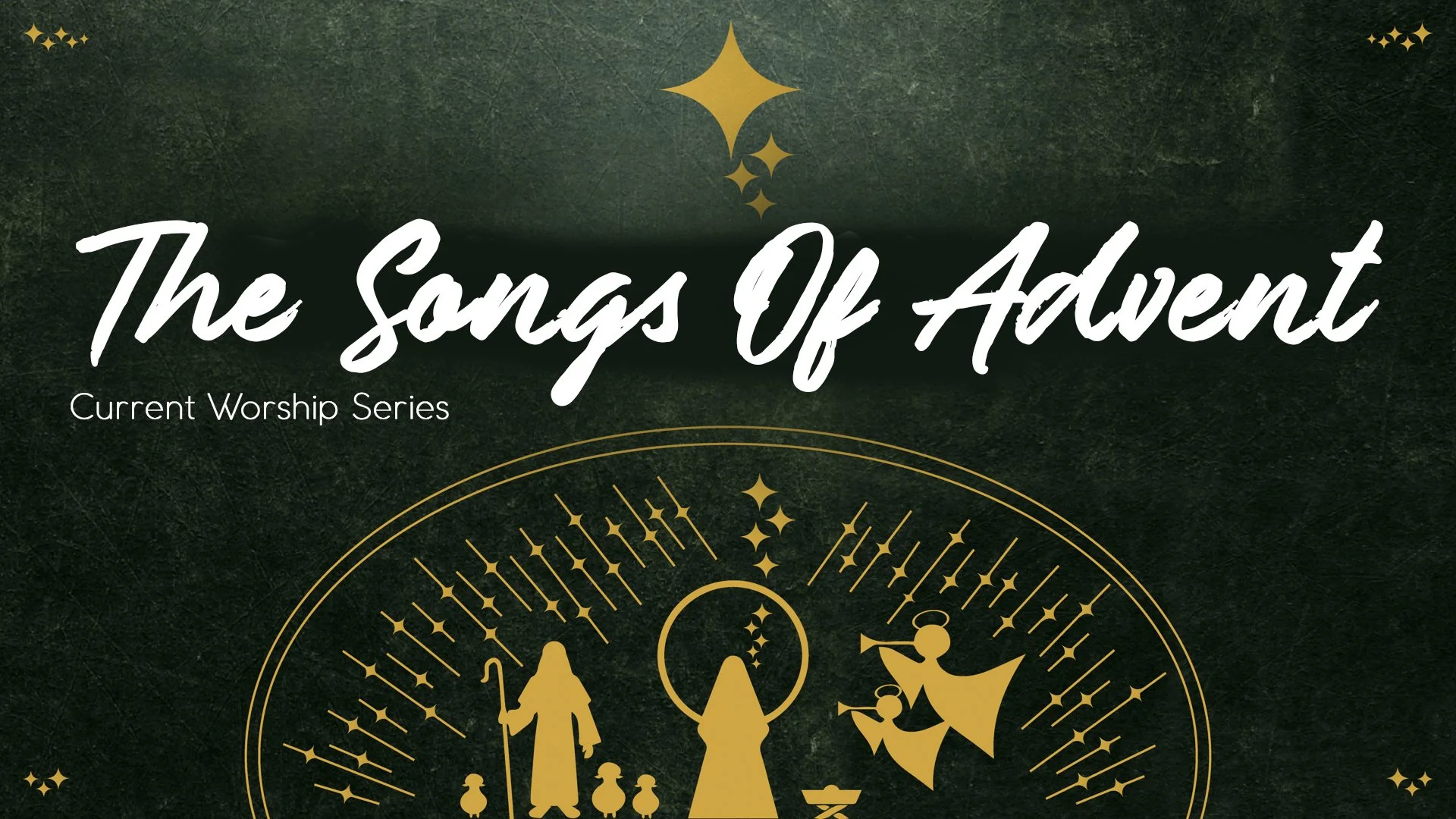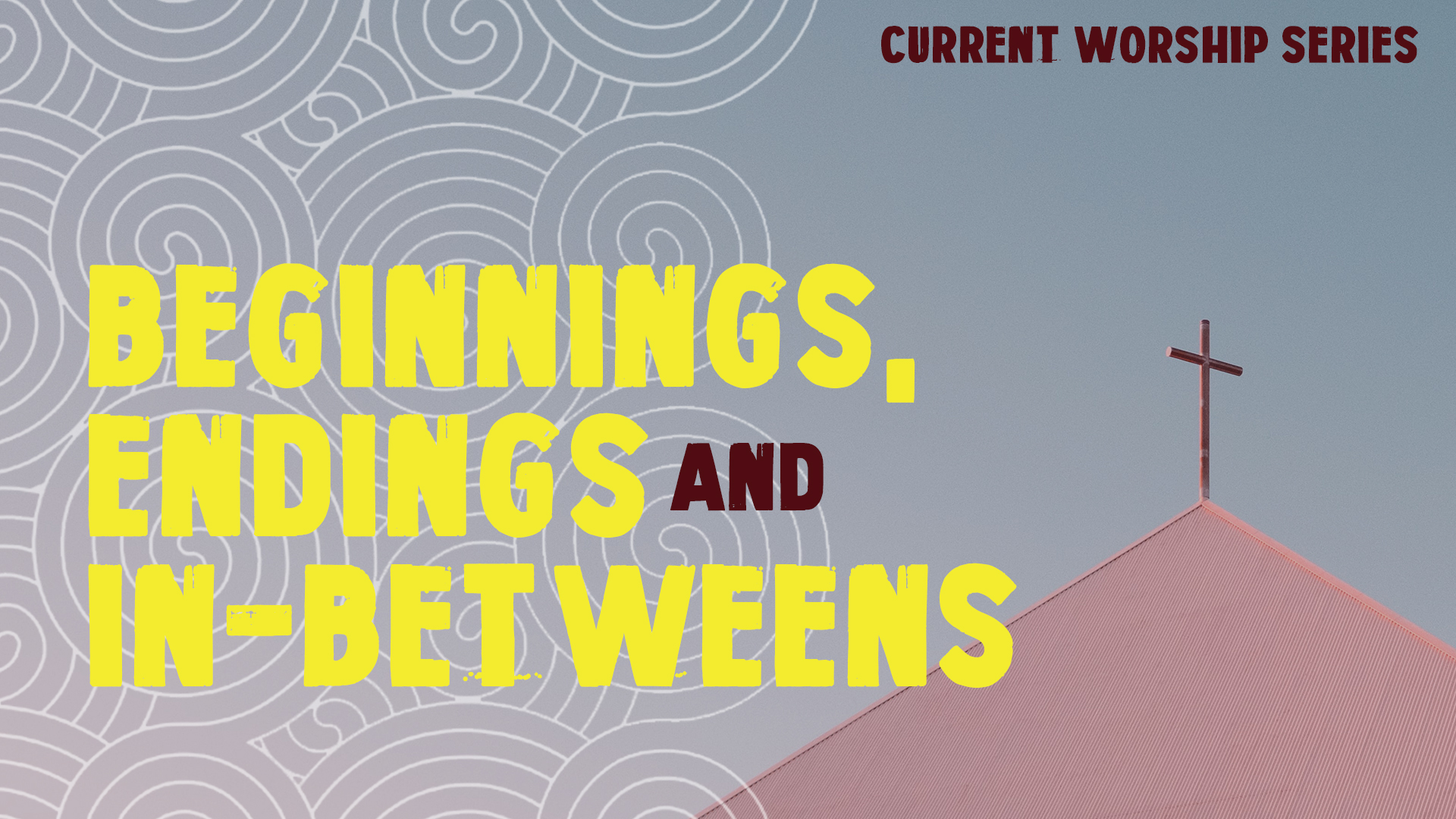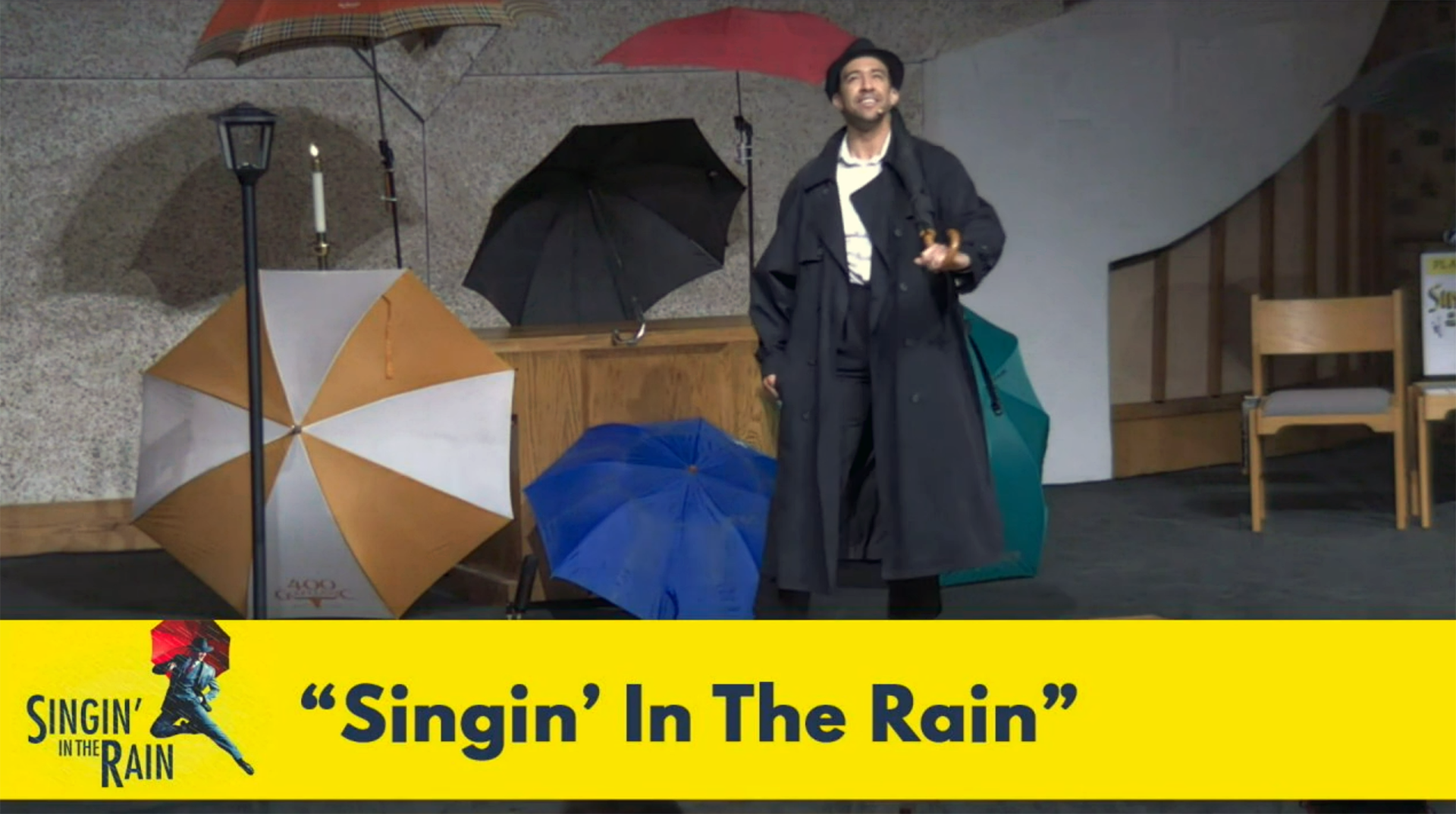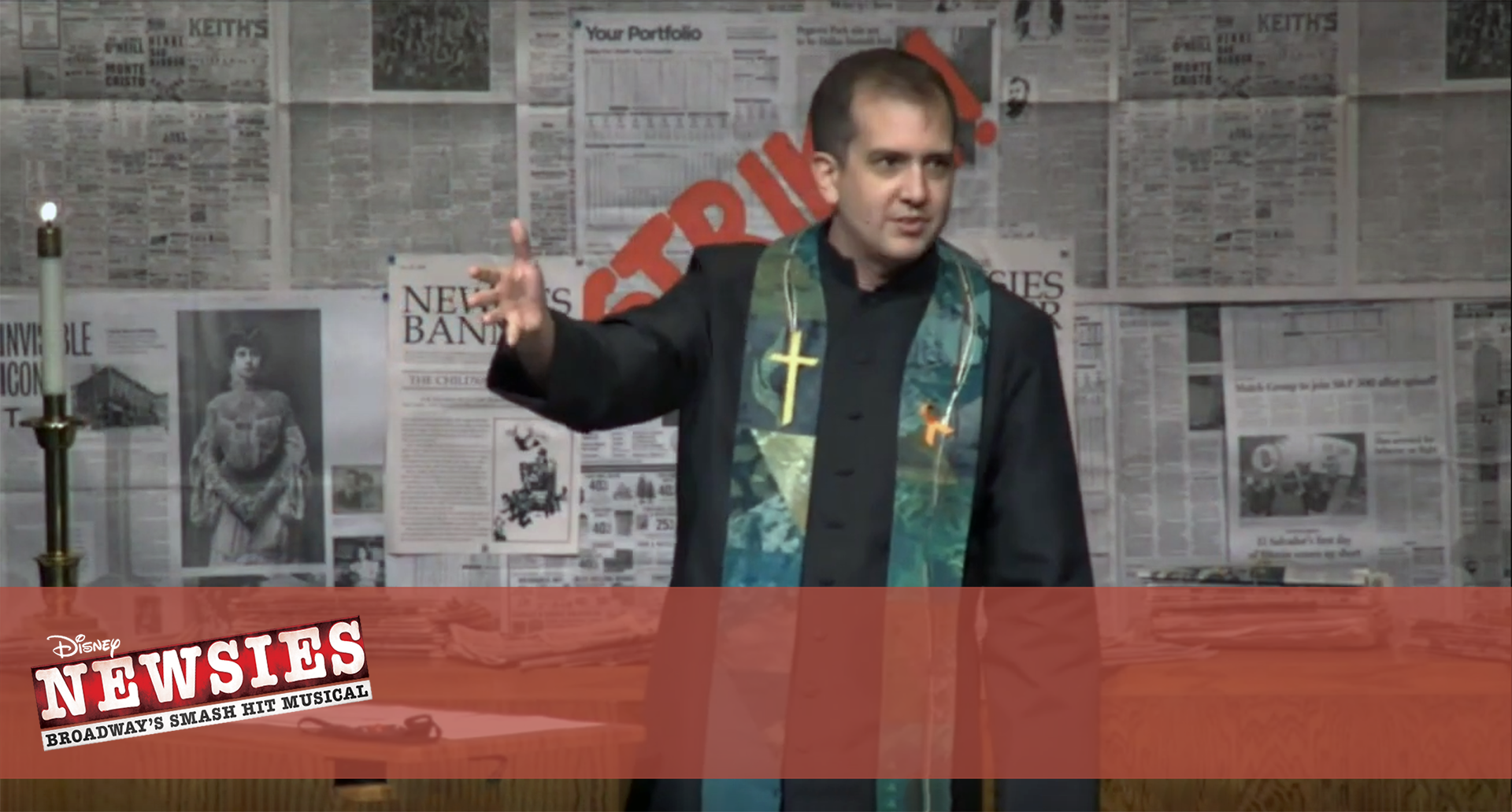Radicals (Week 1)
In the “Radicals” worship series, we will take a close look at several prophets - some major, some minor, and some who might be unfamiliar to you. We will hear their words and understand the warnings - or joy - shared with God’s people. Finally, we’ll look at some modern prophets and compare their proclamations with the practice of the Biblical prophets of old. Who among us today is sharing prophetic wisdom and in what way?
Epiphany - The Path of the Magi
Having followed the star, they journey to find the newborn King of the Jews. They offer him gold, frankincense, and myrrh. But the Magi have a more precious gift for us. In the night, they heard the Spirit warning them not to return to Herod but return home by a different route. They gave us the gift of listening to God's Spirit and the confidence to follow a different path. Just as they trusted the appearance of the star to take them to the King, they trusted the voice of the Spirit. They step into the unknown, without a star to lead them, and rejoicing, follow the voice of God.
Having followed the star, they journey to find the newborn King of the Jews. They offer him gold, frankincense, and myrrh. But the Magi have a more precious gift for us. In the night, they heard the Spirit warning them not to return to Herod but return home by a different route. They gave us the gift of listening to God's Spirit and the confidence to follow a different path. Just as they trusted the appearance of the star to take them to the King, they trusted the voice of the Spirit. They step into the unknown, without a star to lead them, and rejoicing, follow the voice of God.
The Songs of Advent (Week 4)
As we listen to the song "What Child is This?" it refers to "the babe, the Son of Mary." So today, we take a look at Mary's song - the Magnificat, from Luke Chapter 1:46 - 55. What does it mean to identify Jesus as the Son of Mary?
We know Jesus to be both fully human and fully divine in our faithful tradition. So when we talk about Jesus having the heart of God, it's important to remember he had the heart of Mary also.
As we listen to the song "What Child is This?" it refers to "the babe, the Son of Mary." So today, we take a look at Mary's song - the Magnificat, from Luke Chapter 1:46 - 55. What does it mean to identify Jesus as the Son of Mary?
We know Jesus to be both fully human and fully divine in our faithful tradition. So when we talk about Jesus having the heart of God, it's important to remember he had the heart of Mary also.
The Songs of Advent (Week 3)
As we light the Shepherd's candle in Advent, we listen to Vivaldi's best known sacred work, his Gloria. We call to mind the angel's proclamation to the shepherds who were the first to hear of the birth of Christ. "Glory to God in the highest and on earth peace, goodwill towards all!" Luke 2:14
The glory of heaven entered the world in darkness. To those who wait in the darkness of oppression, the angels proclaim that the light of Christ is entering the world. And this child is to be the comfort and joy of all.
As we light the Shepherd's candle in Advent, we listen to Vivaldi's best known sacred work, his Gloria. We call to mind the angel's proclamation to the shepherds who were the first to hear of the birth of Christ. "Glory to God in the highest and on earth peace, goodwill towards all!" Luke 2:14
The glory of heaven entered the world in darkness. To those who wait in the darkness of oppression, the angels proclaim that the light of Christ is entering the world. And this child is to be the comfort and joy of all.
The Songs of Advent (Week 2)
On this second Sunday of Advent, enter John the Baptist, as we focus on a relatively new hymn that is sure to become an Advent favorite, "O Day of Peace That Dimly Shines."
O day of peace that dimly shines
through all our hopes and prayers and dreams,
guide us to justice, truth, and love,
delivered from our selfish schemes.
May swords of hate fall from our hands,
our hearts from envy find release,
till by God's grace our warring world
shall see Christ's promised reign of peace.
On this second Sunday of Advent, enter John the Baptist, as we focus on a relatively new hymn that is sure to become an Advent favorite, "O Day of Peace That Dimly Shines."
O day of peace that dimly shines
through all our hopes and prayers and dreams,
guide us to justice, truth, and love,
delivered from our selfish schemes.
May swords of hate fall from our hands,
our hearts from envy find release,
till by God's grace our warring world
shall see Christ's promised reign of peace.
The Songs of Advent (Week 1)
Advent is a season of anticipation, of expectation. On this first Sunday of Advent, we focus on the hymn "O Come, O Come, Emmanuel," a text from the prophet Jeremiah.
The days are surely coming, says the LORD, when I will fulfill the promise I made to the house of Israel and the house of Judah. Jeremiah 33:14
Prophets rose up only when the Israelites were in trouble, not in the days where everything was going their way. Their role was corrective - to address the present darkness with hope in God's covenants.
Even in our darkest days, when we wait with hope, we move from despair to patience. Like Jeremiah, a prophetic heart is filled with unending hope.
Advent is a season of anticipation, of expectation. On this first Sunday of Advent, we focus on the hymn "O Come, O Come, Emmanuel," a text from the prophet Jeremiah.
The days are surely coming, says the LORD, when I will fulfill the promise I made to the house of Israel and the house of Judah. Jeremiah 33:14
Prophets rose up only when the Israelites were in trouble, not in the days where everything was going their way. Their role was corrective - to address the present darkness with hope in God's covenants.
Even in our darkest days, when we wait with hope, we move from despair to patience. Like Jeremiah, a prophetic heart is filled with unending hope.
Beginnings, Endings & In-Betweens (Week 7)
This Sunday, Pastor Cathy facilitates a discussion among the pastoral staff about the concept of "peace." Is it something we have to work to achieve on a personal level? Scripture speaks of this "shalom" as a gift given to us by God. Why does it seem so elusive at times? Where do you go when you need to find peace?
This Sunday, Pastor Cathy facilitates a discussion among the pastoral staff about the concept of "peace." Is it something we have to work to achieve on a personal level? Scripture speaks of this "shalom" as a gift given to us by God. Why does it seem so elusive at times? Where do you go when you need to find peace?
Beginnings, Endings & In-Betweens (Week 6)
What is Christian Community? Pastor Scott examines Acts Chapter 2 to see how Luke described the church's infancy in his description of their communities. The writer speaks of great awe, generosity, and authenticity shared among them. They spent time, not just in worship, but in each other's lives and each other's homes, accepting each other just as they are. They were a family.
What is Christian Community? Pastor Scott examines Acts Chapter 2 to see how Luke described the church's infancy in his description of their communities. The writer speaks of great awe, generosity, and authenticity shared among them. They spent time, not just in worship, but in each other's lives and each other's homes, accepting each other just as they are. They were a family.
Beginnings, Endings & In-Betweens (Week 5)
Pastor Scott's sermon series on Beginnings, Endings & In-Betweens looks at the biblical concept of the "end times." What we believe about the end informs how we live in the present. If our belief in God somehow leads us to be less caring, we are worshiping something less than divine. So what do these end-times look like? The Apostle Paul encourages those "in Christ," who have already been reconciled to God through Christ as a "new creation," are themselves called to the ministry of reconciliation. How is God leading you in your ministry of reconciliation?
Pastor Scott's sermon series on Beginnings, Endings & In-Betweens looks at the biblical concept of the "end times." What we believe about the end informs how we live in the present. If our belief in God somehow leads us to be less caring, we are worshiping something less than divine. So what do these end-times look like? The Apostle Paul encourages those "in Christ," who have already been reconciled to God through Christ as a "new creation," are themselves called to the ministry of reconciliation. How is God leading you in your ministry of reconciliation?
Beginnings, Endings & In-Betweens (Week 4)
Today Pastor Scott examines the story of Lazarus, whom Jesus raised from the dead—continuing on the theme of his sermon series, Beginnings, Endings, and In-Betweens. What do you imagine happens when the body dies? The Jews had their traditions about the afterlife—it was little more than a state of limbo where you went to wait for the resurrection on the last day. Other religions speak of reincarnation. Dante outlines both paradise and torment. What do you think happens on the other side of the grave? What can we learn from the story of Lazarus?
Today Pastor Scott examines the story of Lazarus, whom Jesus raised from the dead—continuing on the theme of his sermon series, Beginnings, Endings, and In-Betweens. What do you imagine happens when the body dies? The Jews had their traditions about the afterlife—it was little more than a state of limbo where you went to wait for the resurrection on the last day. Other religions speak of reincarnation. Dante outlines both paradise and torment. What do you think happens on the other side of the grave? What can we learn from the story of Lazarus?
Beginnings, Endings & In-Betweens (Week 3)
What is your framework for Truth? It's not a simple question. Ask ten people, and you'll probably get ten different answers. So this week, Pastor Scott lays out the fourfold Wesleyan approach to spiritual understanding: Scripture, Tradition, Reason, and Experience. Each of these can be unpacked at great length, but the shorthand acknowledges not all scripture is created equal; tradition for tradition's sake is nostalgia, and reason isn't a substitute for faith. Somewhere along the journey, you begin to understand that Truth must be lived before it can be fully understood. And through your lived experience, what resonates is Truth.
What is your framework for Truth? It's not a simple question. Ask ten people, and you'll probably get ten different answers. So this week, Pastor Scott lays out the fourfold Wesleyan approach to spiritual understanding: Scripture, Tradition, Reason, and Experience. Each of these can be unpacked at great length, but the shorthand acknowledges not all scripture is created equal; tradition for tradition's sake is nostalgia, and reason isn't a substitute for faith. Somewhere along the journey, you begin to understand that Truth must be lived before it can be fully understood. And through your lived experience, what resonates is Truth.
Beginnings, Endings and In-Betweens (Week 2)
Last week, Pastor Scott talked about the beginning of the Christian journey - our baptism. This morning, he looks at the food for the journey – the sacrament of communion. Using the depiction of the disciples in Matthew's gospel, before, during, and after the last supper, Jesus must have been so disappointing in his hand-picked brothers. Yet he broke the bread and poured the cup of forgiveness with, undeniably, some of the world's worst friends – which begs the question, is your table open to all? Listen to the Good News!
Last week, Pastor Scott talked about the beginning of the Christian journey - our baptism. This morning, he looks at the food for the journey – the sacrament of communion. Using the depiction of the disciples in Matthew's gospel, before, during, and after the last supper, Jesus must have been so disappointing in his hand-picked brothers. Yet he broke the bread and poured the cup of forgiveness with, undeniably, some of the world's worst friends – which begs the question, is your table open to all? Listen to the Good News!
Beginnings, Endings, and In-betweens (Week 1)
How does church show up for you in your life? How do we understand the life of faith? This week, Pastor Scott begins this sermon series with the sacrament of baptism, specifically the Wesleyan understanding of the grace we were born into. For Wesleyans, grace is understood to be three-pronged, like the Holy Trinity. First, a grace that is prevenient or inclusive grace that covers all; a justifying grace that calls us out of our selfishness by giving us the humble desire to serve God; and a sanctifying grace that carries us throughout the journey. From the very beginning, you are seen, you are known, and you are loved.
How does church show up for you in your life? How do we understand the life of faith? This week, Pastor Scott begins a new sermon series on Beginnings, Ending, and In-betweens - starting at the beginning - the sacrament of baptism, specifically the Wesleyan understanding of the grace we were born into. For Wesleyans, grace is understood to be three-pronged, like the Holy Trinity. First, a grace that is prevenient or inclusive grace that covers all; a justifying grace that calls us out of our selfishness by giving us the humble desire to serve God; and a sanctifying grace that carries us throughout the journey. From the very beginning, you are seen, you are known, and you are loved.
Bible On Broadway (Newsies)
AUMC's Bible On Broadway series focuses today on the historical musical drama, Newsies, depicting the 1899 newsboys' strike against publishing magnate Joseph Pulitzer. In this campaign for dignity, we see the human economy of scarcity juxtaposed against God's economy of abundance. Pastor Scott leads us down this same path in Matthew Chapter 15 with the telling of the Canaanite woman. Dignity is not a limited resource. We may live in a zero-sum world, but with our faith fixed on the One who provides, all are fed from the Master's table.
AUMC's Bible On Broadway series focuses today on the historical musical drama, Newsies, depicting the 1899 newsboys' strike against publishing magnate Joseph Pulitzer. In this campaign for dignity, we see the human economy of scarcity juxtaposed against God's economy of abundance. Pastor Scott leads us down this same path in Matthew Chapter 15 with the telling of the Canaanite woman. Dignity is not a limited resource. We may live in a zero-sum world, but with our faith fixed on the One who provides, all are fed from the Master's table.
Bible On Broadway (SpongeBob)
This morning, AUMC's Bible On Broadway series focuses on belonging from the musical SpongeBob. The story celebrates friendship, cooperation, unity, and inclusion - very much the same way the apostle Paul instructs the church at Corinth about the body of Christ. Every individual gift is given for the common good – the good of the whole body. Even if you're only a simple sponge, you are essential to the whole! At Arapaho, we belong to each other. Lean into your gifts, whatever they are. You belong here.
This morning, AUMC's Bible On Broadway series focuses on belonging from the musical SpongeBob. The story celebrates friendship, cooperation, unity, and inclusion - very much the same way the apostle Paul instructs the church at Corinth about the body of Christ. Every individual gift is given for the common good – the good of the whole body. Even if you're only a simple sponge, you are essential to the whole! At Arapaho, we belong to each other. Lean into your gifts, whatever they are. You belong here.
Bible On Broadway (Come From Away)
Most of us have our own stories about September 11, 2001. “Come From Away” shares the story of the town of Gander, located in the northeastern part of Newfoundland, Canada. This small town of 9,000 was changed overnight when thirty-eight jets headed for the United States were diverted to the island. Over 6,500 displaced strangers from almost 100 countries were now stranded on the runways. How would the “Islanders” respond to the sudden influx of refugees? Would fear take over, or would love and care for neighbors prevail?
Most of us have our own stories about September 11, 2001. “Come From Away” shares the story of the town of Gander, located in the northeastern part of Newfoundland, Canada. This small town of 9,000 was changed overnight when thirty-eight jets headed for the United States were diverted to the island. Over 6,500 displaced strangers from almost 100 countries were now stranded on the runways. How would the “Islanders” respond to the sudden influx of refugees? Would fear take over, or would love and care for neighbors prevail?
The Greatest Of These
Today, Pastor Holly examines I Corinthians 13 – an oldie, but a goodie - the scripture passage you only hear in church anymore at weddings. However, marriage was not at all the point of Paul’s exhortation.
Corinth was a Mediterranean trade route and cultural melting pot. And Paul was a newly redeemed Christian persecutor and a born-again missionary. So, where did he go to start churches? Corinth.
In the previous chapter, Paul enumerates the gifts of the holy spirit. In this chapter, he tells us what these gifts are to be used to accomplish.
Paul didn’t want the new church postulating over who has the best spiritual gift. Spiritual gifts are for the common good, not for personal gain. Love is the greatest gift because it is the most transformational.
Today, Pastor Holly examines I Corinthians 13 – an oldie, but a goodie - the scripture passage you only hear in church anymore at weddings. However, marriage was not at all the point of Paul’s exhortation.
Corinth was a Mediterranean trade route and cultural melting pot. And Paul was a newly redeemed Christian persecutor and a born-again missionary. So, where did he go to start churches? Corinth.
In the previous chapter, Paul enumerates the gifts of the holy spirit. In this chapter, he tells us what these gifts are to be used to accomplish.
Paul didn’t want the new church postulating over who has the best spiritual gift. Spiritual gifts are for the common good, not for personal gain. Love is the greatest gift because it is the most transformational.



